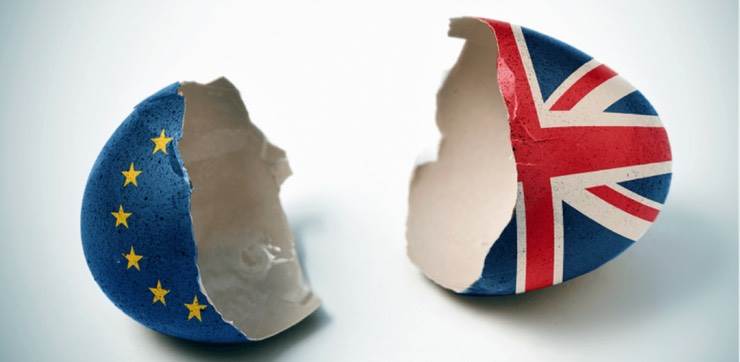
Behavioural Economist Roger Martin-Fagg treated Platinum Property Partners to a presentation analysing and predicting the effects of a turbulent 2016 on the future of the British economy at a recent Workshop.
For anybody living under a rock for the past year, two surprising results dominated the economic forecasts given – that of the United Kingdom public’s decision via referendum to leave the European Union, and that of Donald Trump winning the US presidential election. With Theresa May finally triggering Article 50 last week, we take a look at the predictions and forecasts made surrounding the effect of Brexit on the UK economy.
Roger Martin-Fagg studied Economics at Leicester University, and has been studying how humans make decisions, and the consequences of making these decisions in an economic context, for the past 40 years. Behavioural economics is based on mainstream neoclassical economic principles, which are ultimately underpinned by elegant logical decision making, which is in stark contrast to how humans behave most of the time, Roger explained:
“The reason why I became a behavioural economist is that at University no one could answer the question: why do we assume human beings behave rationally? Because that’s the core assumption of neoclassical economics and I still have not yet met a rational human being. All the people I meet are emotional, creative, inconsistent. And particularly they will always get the data to prove what their instinct tells them and if the data doesn’t prove what they want to believe or what their instinct tells them, they say ‘well the data is wrong!'”
Roger attributed the level of uncertainty felt to the economic landscape we’re in at the moment full of ‘unknown unknowns’, where the best we can hope for are inspired guesses rather than forecasts. He mused that if what is being known as a ‘hard Brexit’ occurs to the full extent, then Britain would have to follow certain rules set out by the World Trade Organisation (WTO). In all likelihood we could see a detrimental effect on the economy in the short term, with a recession in three years triggered by interest rates and inflation rising above expectations by the end of 2018, causing the Real GDP % to plummet towards the 1% mark and lower in 2020.
Roger went on to warn the Queen of the possibly detrimental effect Brexit could have on the British economy: “I want to say this publicly. In three years from now if we begin to see the signs of the recession coming through, and the Queen says ‘why didn’t people tell us’ – remember she said that about 2008 – I want it known that I said it here, this year.”
Full of humorous undertones, Roger began to discuss the role that a method called ‘anchoring’ played in the EU referendum result. The method of anchoring is using statements or facts which are designed to sway the mind of someone who uses the first piece of information to make subsequent judgments on everything. An example would be the ‘£350 million a week for the NHS’ Brexit bus, although both sides of the referendum campaign used them. More examples of anchoring were certainly seen in 2016 in Donald Trump’s US presidential campaign.
The housing market, as Roger discussed, is also full of interesting economic behaviour, not least the misunderstanding in the popular opinion that houses are becoming less and less affordable due to a lack of supply:
“People always say it is a lack of supply. Well there is a lack of supply in some parts of the country – not everywhere, but in some parts. The reason why prices are still going up is banks are enabling people to pay the price of whatever is being asked. If people were unable to borrow sufficient money to enable them to buy the house, the price of those houses would go down.”
The housing market was also touched upon as a possible indicator for future economic insecurity: “We know that when house prices stop rising, consumer confidence drops, and then we get the recession.”
The headline of the presentation was that the effect of Brexit and triggering Article 50 would see a transitional deal eventually becoming permanent. But it wasn’t all doom and gloom either, Roger saw a future where Britain could recover and start to thrive in 2025, so don’t start emigrating just yet! Only time will tell.
To find out more about Platinum Property Partners, click here.
Published: 6 April 2017
Back to news